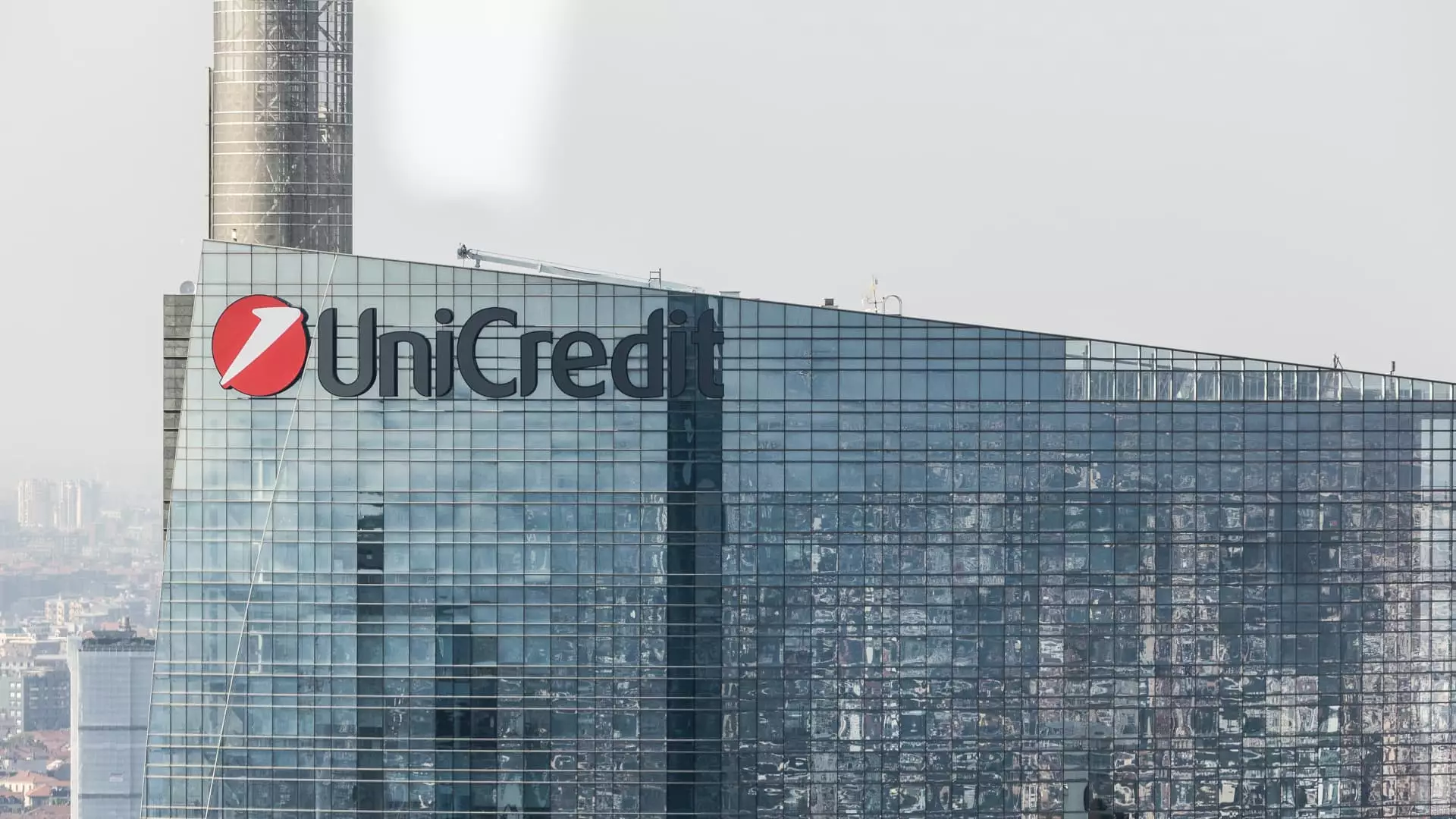On a recent Wednesday, Italy’s UniCredit revealed a noteworthy maneuver in the banking sector: the bank has elevated its potential stake in the German lender Commerzbank to an impressive 28%. This increment follows a previous holding of 21% and is achieved through further derivatives. UniCredit’s investment portfolio now includes a direct ownership of 9.5% alongside approximately 18.5% through derivative instruments. This strategic decision not only indicates UniCredit’s growing confidence in Commerzbank’s future, but it also raises questions about their intentions to pursue an outright acquisition.
In conjunction with this increase in ownership, UniCredit has sought authorization from the European Central Bank (ECB) to extend its stake up to 29.9%. This maneuver signals a calculated approach by CEO Andrea Orcel, who is simultaneously vying for control over Banco BPM, another key player within the Italian banking landscape. UniCredit asserts that the increasing stake reflects a belief in unlocking substantial value within Commerzbank, emphasizing the vital role of a robust banking sector in enhancing Germany’s economic framework. Though UniCredit states its current position is “solely an investment,” it raises eyebrows regarding the potential for future consolidation within the European banking sector.
Market analysts are keenly observing these developments, speculating that Orcel’s strategic operations may lead to a sweeter bid for Banco BPM, possibly incorporating a cash element to bolster competitive advantages in Italy. Following UniCredit’s announcement regarding Banco BPM, it was made clear that such a merger would fortify its competitive stance domestically, where it stands as the second-largest bank after Intesa Sanpaolo. This raises a crucial question about whether UniCredit can balance its aspirations for expansion in both Germany and Italy effectively.
Compounding the intricacies of UniCredit’s ambitions are the political dynamics in Germany. While UniCredit is keen on pursuing Commerzbank, there exists resistance from the German government, which has previously expressed concerns regarding foreign acquisitions. This apprehension stems from the backdrop of a tumultuous political climate following the recent collapse of the ruling coalition and significant challenges faced by Chancellor Olaf Scholz. These developments may complicate UniCredit’s overtures toward Commerzbank as the German administration navigates its own political uncertainties.
The potential merger of UniCredit and Commerzbank harbors promising avenues for synergies across various financial sectors, including capital markets, advisors, and trade financing. As negotiations unfold, the market has exhibited a positive reception, with UniCredit’s stock witnessing a 1.1% gain and Commerzbank’s shares climbing 3.1%. The coming months will be crucial as both UniCredit and Commerzbank reassess their strategies amid fluctuating market conditions and regulatory evaluations. Ultimately, the journey ahead holds significant implications for the European banking landscape, setting a precedent for future cross-border mergers and acquisitions.

